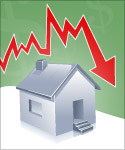The economic horizon of the United States in 2024 presents a tapestry woven with various threads, each representing the aftermath of the pandemic and subsequent recovery endeavors. Here are some of the details of the economic outlook for the year, drawing upon insights from esteemed financial institutions and economic research bodies.
Economic Growth Projections
Forecasts indicate a nuanced trajectory for real GDP growth, hinting at a delicate equilibrium between expansion and contraction. Following a commendable growth rate of 2.8% in 2023, projections suggest a more tempered pace of around 0.7% for 2024. This deceleration mirrors the broader impact of monetary policy and the gradual waning of post-pandemic tailwinds. While consumer spending, a pivotal GDP component, is poised for a modest uptick, fiscal spending might transition from a growth driver in 2023 to a modest drag in the ensuing year.
Monetary Policy and Interest Rates
The Federal Reserve's policy decisions remain pivotal in shaping the economic trajectory. Speculations abound that the hiking cycle has drawn to a close, with the Fed Funds rate expected to stabilize at 5.25%-5.5% until mid-2024. A potential normalization of policy rates around the year's midpoint, contingent upon inflation maintaining its moderating trajectory, could set the stage for a target range of 4.00%-4.25% by the year's end.
Consumer Spending and Labor Markets
Despite the anticipated slowdown, the resilience of the US consumer is anticipated to persist. Factors such as dwindling excess savings and plateauing wage gains may exert pressure on consumer spending growth. Nonetheless, robust household balance sheets and favorable debt servicing levels, coupled with a buoyant labor market fostering employment and income, signal that consumer spending growth could retain a positive trajectory, albeit at a moderated pace compared to 2023.
Fiscal Policy and Government Spending
The fiscal impetus witnessed in 2023, which witnessed the doubling of the deficit to $1.84 trillion, is poised for a mild reversal in 2024. Projections indicate a narrowing of the federal deficit to 5.9% of GDP, reflecting a degree of spending restraint partially offset by higher interest outlays on government debt.
Risks and Considerations
Looking ahead, a constellation of risks could exert influence on the economic landscape. These include geopolitical tensions, the lagged repercussions of elevated interest rates, and the ramifications of the forthcoming US election. Moreover, the global economic milieu continues to harbor uncertainties that could reverberate through the US economy.
Inflation and Deflation Dynamics
Inflation, a perennial concern for policymakers and consumers alike, is anticipated to continue its gradual descent in 2024. Forecasts suggest that the Consumer Price Index (CPI) may hover around 2.5% for the year, marking a decline from the previous year's average of 3.2%. This anticipated moderation is ascribed to the Federal Reserve's proactive monetary policy stance in preceding years, which has helped assuage inflationary pressures. Nonetheless, the specter of deflation looms, particularly if consumer demand falters more than anticipated.
Trade and Global Economic Interactions
The US trade balance remains a focal point, with projections hinting at a slight narrowing of the current account deficit. This is attributed to a confluence of factors, including a weaker dollar and an incremental enhancement in export competitiveness. Nevertheless, trade frictions and protectionist measures pose potential risks to this outlook, potentially precipitating volatility in trade flows and currency markets.
Housing Market Trends
The housing market is poised for stabilization after weathering tumultuous fluctuations in recent years. Mortgage rates are anticipated to hover around current levels, offering some respite to prospective homebuyers. However, affordability concerns persist, as home prices are not anticipated to witness significant declines from their elevated levels, posing a challenge to the aspiration of homeownership for many Americans.
Technological Advancements and Productivity
Technological innovation emerges as a beacon of hope in the US economy, driving productivity enhancements across diverse sectors. Investments in artificial intelligence, automation, and sustainable technologies are projected to yield enduring economic dividends, notwithstanding the short-term disruptions they may entail in the labor market.
Energy Sector Outlook
The energy sector is undergoing a metamorphosis, with renewable energy sources gaining traction. The transition towards a more sustainable energy mix is anticipated to persist, buoyed by policy incentives and technological strides. Nonetheless, traditional oil and gas segments will retain their significance in the economic landscape, with prices poised to oscillate amidst geopolitical uncertainties.
The US National Economic Outlook for 2024 portends a period of transition and adaptation. While growth is poised to decelerate, the groundwork for a resilient and stable economy is firmly laid. Policymakers, businesses, and consumers must navigate the challenges ahead with prudence and foresight, ensuring the economy's resilience in the face of headwinds and its adeptness in seizing emerging opportunities.
Bottom Line: The economic outlook for the United States in 2024 paints a picture of cautious optimism, with growth poised to moderate but retain positivity. The economy appears to be charting a course toward a “soft landing,” with consumer resilience and policy adjustments assuming pivotal roles in upholding stability. As always, vigilance and adaptability will be indispensable in navigating the economic terrain, both its challenges and its opportunities.




